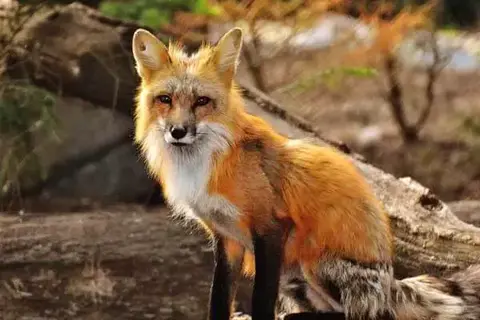What Do Doves Eat In The Wild And At Home?
Khai DoveWe can find doves on any street in the city or village. These birds have long and firmly established a place in the neighborhood of humans. It is not uncommon to see people generously throwing all kinds of cereals and crusts of bread to feed the birds. But how many people wonder what to feed doves, so as not to harm their health? Street birds are not very picky; they will eat anything they come across. The problem is that such feeding is detrimental to their gastrointestinal tract. Over time, the bird develops severe diseases and dies. It is indicative that this feathered bird lives on the street for about 2-5 years, while its theoretical life expectancy is 20 years. Such a huge difference depends primarily on what the dove eats.
What do doves eat in the wild?
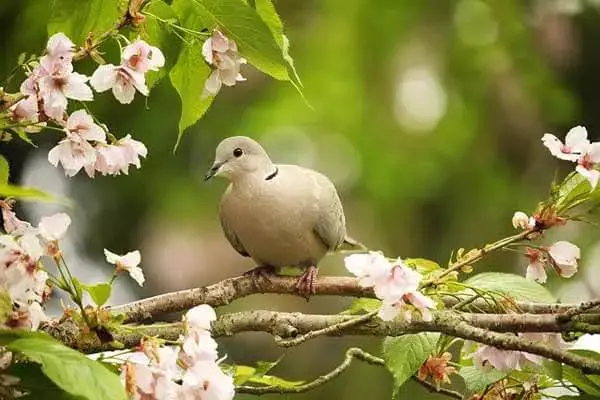
Wild doves eat a variety of greens, insects, and seeds. But you can’t find that kind of food in urban environments. In parks, squares, and street lawns, you rarely see thickets of grass. Usually, all the greenery is mowed, leaving no chance for the doves to find the food they need. Such living conditions, combined with their innate unpretentiousness, force the birds to eat whatever is easiest to find. As a rule, these are leftovers near garbage cans and different kinds of food that people bring.
Feeding doves in the street is a controversial practice that has long been the subject of debate. But if you do decide to help the birds, it is better to do it competently. Often you can see how birds are thrown bread in the form of crumbs or whole slices. The truth is that such humanitarian aid brings only harm. Bread gives birds a feeling of fullness, but at the same time, it hurts the body. If birds regularly eat flour products, they will not die of hunger but die of various gastrointestinal diseases.
As in any living creature, the body of the dove needs a balanced diet. Therefore, to feed them, it is better to buy a special grain mixture in a pet store. You can also make it yourself by mixing several kinds of grains and cereals: rice, millet, barley, wheat, buckwheat, millet, and oats. This mixture will do the street birds much more good than a loaf of bread.
If you happen to see doves in a nest, you should not try to feed them. It is better not to touch these chicks at all. The fact is that parent-doves are very security-conscious, so they can abandon their home together with their children if they feel the presence of a person. Therefore, it is better to just leave. When adults return from fishing, they will feed the chicks with special goitrogens milk, which contains all the necessary substances.
What do doves eat at home?
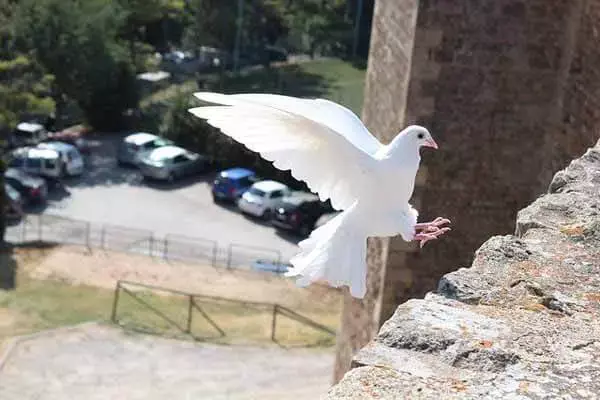
Dove breeding is quite a profitable business. But it is possible to make it so only if the rules of feeding the birds are followed. First of all, the feeding system depends on the breed of dove and the purpose of breeding. For example, birds that are bred for further serving in restaurants need more food than show birds. But the general rules of feeding remain the same for all breeds.
The diet of adult doves
The staple foods of a bird’s diet are grain and grass. Grain mixture for feeding doves at home most often consists of the following elements:
Barley or pearl barley 40% of the total weight; millet 10%; wheat 30%; the remaining 20% is distributed between legumes, oats, and millet.
If for some reason, there is no possibility to prepare the mix yourself, you can buy parrot food at the pet store. Such food is perfect for doves but will cost a little more.
Also, the birds’ diet should necessarily include fresh grass. It is best to grow it directly on your own plot. But if there is no such a possibility, you can collect green forage in some clean meadow. In no case you should not tear grass from city lawns, as this greenery grows surrounded by exhaust fumes and other harmful substances, absorbing them all into itself.
Vitamins and minerals for doves
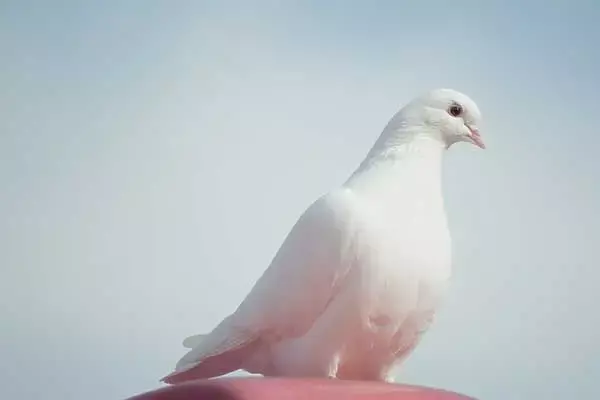
uality nutrition is not without the addition of various nutrients. The most convenient to use for feeding vitamins and mineral complexes, which are sold at veterinary drugstores or in pet stores. But you can do with improvised means. For example, instead of vitamin supplements, you can give birds finely chopped nettles, cabbage, sorrel, and alfalfa. Greens must be fresh. As mineral additives, ground seashells and eggshells are excellent, and charcoal can also be used. Also, an essential part of the vitamin and mineral diet is salt. Its amount should not be less than 20 grams per one liter of water.
Number of feedings of doves
The feeding regime depends primarily on the time of the year. Adult birds should eat from 20 to 50 grams of food per day, depending on the breed.
In summer, feeding is done three times a day. If the dove house is open and the birds are free to fly in the meadow and get their own food during the day, it is enough to give them just a little extra food at home.
In winter, the picture changes somewhat. Feeding becomes two meals a day. As a rule, the first feeding time is at 9 a.m. and the second at 8 p.m. To the evening meal must add a vitamin-mineral mixture, and its composition should be strengthened compared with the summer. After all, in winter the possibility of getting fresh grass is excluded, so it is necessary to compensate for this shortage.
How to feed the dove chicks
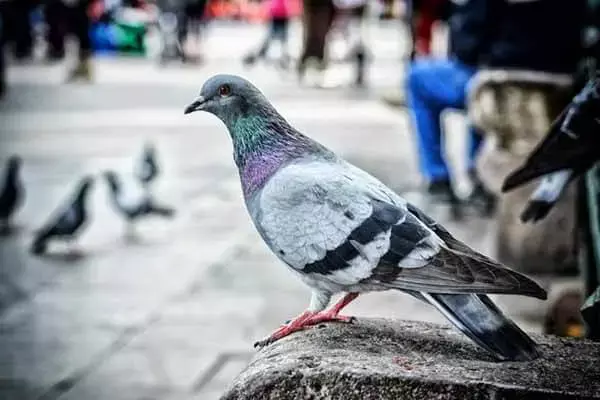
At home, as well as in the wild, the first days of life of newborn doves pass with the constant care of the parents. Adult birds feed their babies with special goitrogens. This substance somewhat resembles human colostrum. It concentrates all the necessary nutrients, vitamins, and minerals. The Siberian bluebird needs exactly this nutrition because the chick needs to grow and gain weight quickly.
At the age of 3-4 weeks, the chick can slowly be transferred to adult food. If the dove house is open, the parents themselves will gradually teach the chick to fly with them to the meadows and there to get food. Otherwise, the change in the feeding system is entirely in the hands of the breeder. To begin with, the chick is offered moistened wheat grains, in which a little fish oil can be added. As the dove grows older, legumes are added to the wheat. When he has fully mastered this food, all the other elements of the adult bird’s diet can be introduced as well.
Sometimes there are situations when a newborn dove is left without its parents immediately after its birth. In such cases, it is of course deprived of goitrous milk, so it needs a special compensatory feeding. In the first week of life, such babies are fed a mixture of egg yolk and milk. The feeding process takes place with a syringe and a thin rubber tube which is inserted into the nestling’s gullet. After a week, the dove can be given liquid milk porridge from lentils or peas.
The chick’s diet should always be plenty of protein, which is necessary for the growth and development of the body. Therefore, you need to monitor the nutritional value of the food. You can give the chick raw protein of chicken eggs mixed with corn or peameal. In such food should be added a few grains of sand, this will improve the digestive system. There is also a special pressed food with increased protein content, it can also be given to the chick as a supplement to the basic diet.
How to feed doves in winter
Feeding doves in winter requires a lot of attention. There are a few basic rules for feeding birds at this time of year.
Reduce the amount of protein. Due to this, birds have less sexual activity. If the proportion of protein in the total diet is not reduced, it will lead to the late appearance of chicks. And in winter it is very difficult to raise healthy doves. To reduce the amount of protein, you can simply remove all legumes from the diet and instead introduce an extra portion of barley or oats.
Adding minerals and vitamins to the diet for doves. In winter, it is difficult to find fresh grass, so birds may be deficient in nutrients. This problem can be solved with dried herbs, prepared for the future.
Cold air has a detrimental effect on the feather cover, making it less soft and fluffy. To avoid this, flax and rape seeds should be added to the diet. Such a supplement will keep the condition of the feathers unchanged.
Food for doves that should not be fed
Since the birds themselves are not particularly picky about food, it is necessary to pay careful attention to the food available to them. There are several groups of products, the use of which will lead to illness or death of the dove:
Any bakery products are almost not digested and lead to the development of gastrointestinal diseases;
meat and fish are completely indigestible, their consumption usually ends in the death of the birds;
milk and all dairy products cause dysbiosis in adult birds;
sunflower seeds, loved by many, maybe given occasionally, but in strictly limited quantities.
What do doves eat? Doves diet
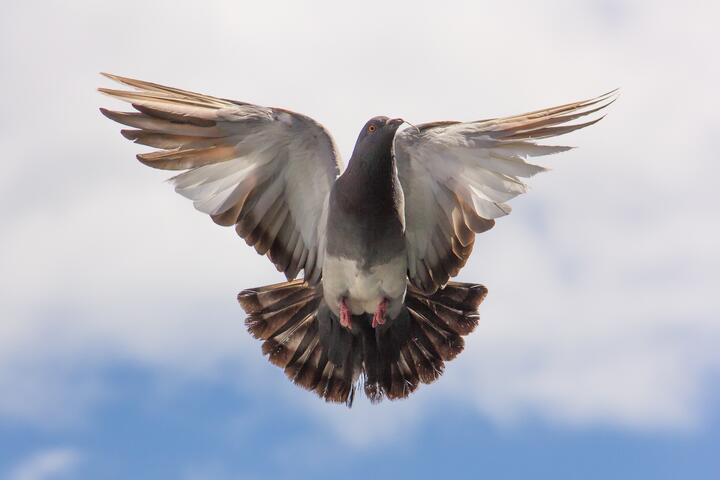 Photo by Pixabay on pexels
Photo by Pixabay on pexelsOne of the most common questions about doves is what do they eat. Most doves feed on the ground but need perches to perch. Electrical wires, clotheslines, and even hay can provide perches for these small birds. Their ideal habitat is an open field or a cleared area around trees or shrubs. Black sunflower seeds are their favorite food, but they will also eat cracked corn or niger seed. They also need clean water.
Some doves are picky eaters and prefer fruits and greens to seeds. However, they can tolerate most types of grains and vegetables, provided they aren’t too acidic. Changing their feeding system is a simple procedure that will make them happy. Once they are three to four weeks old, you can transition them to adult food. Besides, you can teach them to fly out into the meadows or even use a cage for this purpose.
Doves also enjoy eating seeds and nuts. They are omnivorous and will happily eat a variety of foods, including acorns, cracked corn, deer corn, and walnuts. Doves also eat baby birds, dead animals, and flowers. They are also able to eat milo and cheese. To keep them healthy, doves should preferably have a diet rich in vitamins and minerals.
Because they have such small bodies, doves prefer seeds that aren’t shelled. Black-striped sunflower seeds aren’t an ideal choice. Flax and canary seeds are good options, but they don’t have shells. Iceberg lettuce, bread, and other foods with little nutritional value won’t appeal to doves, so you must add a variety of healthy foods that your doves like.
Doves can eat a variety of foods, but their preferred foods are seeds. You can attract these birds to your yard by stocking up on seeds. These birds prefer black oil sunflower and safflower seeds, but they will eat anything you put in front of them. They are known for their fondness for sunflower seeds and safflower seeds. You can also attract them by placing a bird feeder in your backyard.
Doves can be found anywhere. They have become accustomed to humans and their surroundings and are often seen in urban areas. Despite being small, they have become a popular addition to the human population and can be a nuisance. Doves eat food cultivated by humans, as they are not used to eating human food. As a result, it’s important to be mindful of what doves eat and how to properly feed them.
Street birds eat whatever they can get their hands on. If you give them a piece of fruit, they will probably eat it. It’s best to avoid giving them food that is too high in sugar, as they will eat it with great pleasure. In addition, they will often eat small birds that they have already adapted to. They will also eat a variety of other animals, but only a few of these species have their own specific diets.
Doves can eat a variety of foods. Some of them are primary courses, while others are complementary foods. Some of these may be enriched with calcium while others contain more fat. Some of the recommended foods for doves include cracked corn, cereals, oats, peas, pulses, and seed mix. Occasionally, doves will eat insects. They may even eat small pieces of meat.
Doves can eat a variety of different types of food. Some of these foods are main dishes, while others are complementary. They may be able to eat a variety of different foods and still be healthy. For example, they can eat wheat and barley. But they are most likely to eat a combination of grains, including rice. If you’re feeding a dove, they should be able to find all of these things. They need a variety of food to fuel their growth, so a balanced diet is a key to their health.
The most important question for a dove is what do doves eat. While many species of birds will eat plants and insects, doves will also eat meat. Their diet is a combination of plants and insects. They eat a lot of fruits, but they also ingest a wide variety of vegetables and other items. Their primary source of food is a pellet, while their secondary diet is vegetables.
- WildlifeInteresting And Surprising Catfish Facts
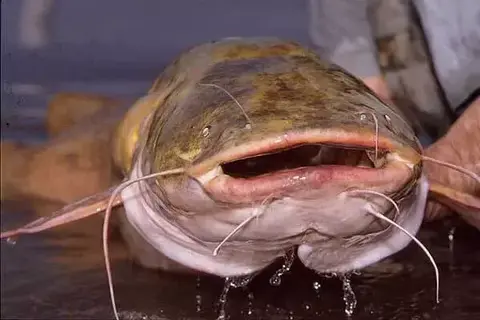
- WildlifeAmazing Facts About A StarfishBy Nolan Foster

- WildlifeAre Chameleons Good Pets?By Charlotte Green
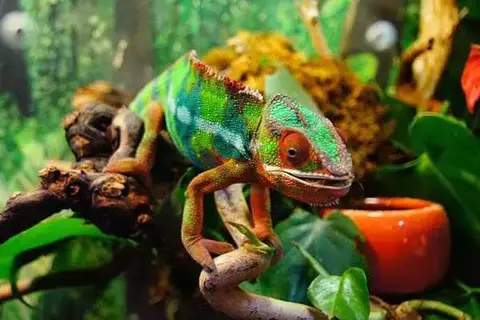
- InsectsWhat Is Ladybug Food?By Noah Young
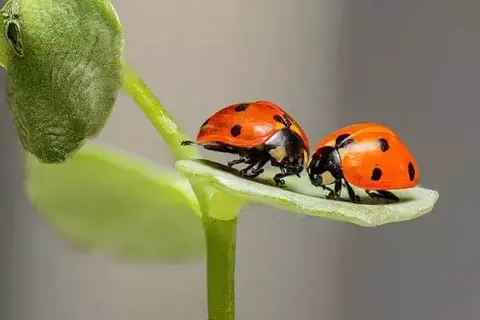
- Birds22 Interesting Facts About EaglesBy Lucas Torres
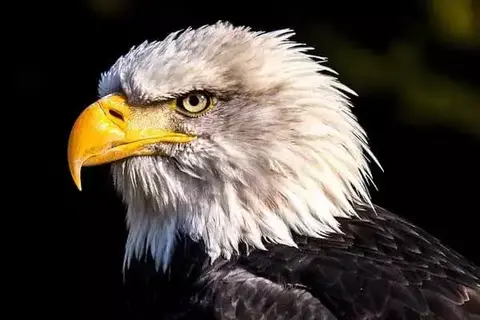
- BirdsPigeons’ Ability To Find Their Way HomeBy Noah Young
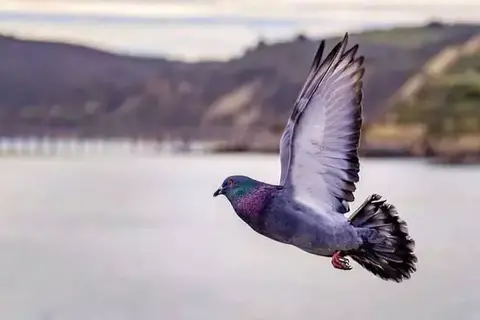
- LivestockWhat Do Llamas Eat?By Lucas Torres
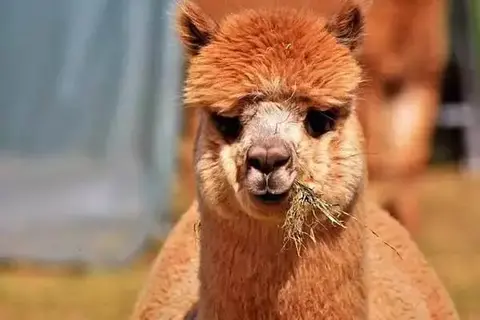
- Wildlife35 Interesting Facts About LionsBy Khai Dove
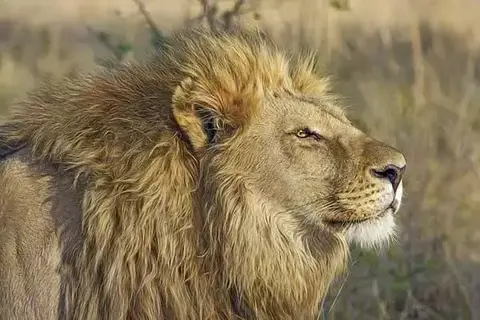
- Wildlife7 Interesting Facts About PumasBy Amelia B
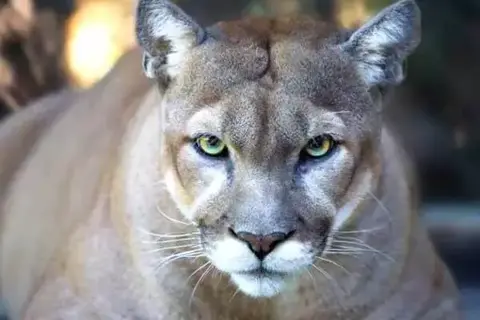
- Wildlife50 Most Interesting Facts About FoxesBy Murphy Scott
